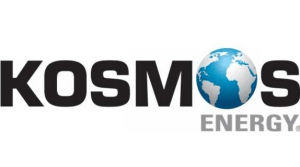 Two major players in Ghana’s oil sector are registered in the ‘world’s worst’ tax havens a new report by Oxfam says.
Two major players in Ghana’s oil sector are registered in the ‘world’s worst’ tax havens a new report by Oxfam says.
Tullow Ghana Limited and Kosmos Energy Ghana Limited are registered in Jersey and Cayman Islands respectively, jurisdictions which fall within the ‘worst’ territories according to the report released on December 12, 2016.
The report entitled ‘Tax Battles,’ showss how these tax havens are leading a global race to the bottom on corporate tax that is starving countries out of billions of dollars needed to tackle poverty and inequality.
Kosmos Energy is on the list in the Cayman Islands and Tullow Oil is on the list in Jersey.
The full list of these tax havens, in order of significance according to the report are: (1) Bermuda (2) the Cayman Islands (3) the Netherlands (4) Switzerland (5) Singapore (6) Ireland (7) Luxembourg (8) Curaçao (9) Hong Kong (10) Cyprus (11) Bahamas (12) Jersey (13) Barbados, (14) Mauritius and (15) the British Virgin Islands.
Oxfam researchers compiled the list by assessing the extent to which countries employ the most damaging tax policies, such as zero corporate tax rates, the provision of unfair and unproductive tax incentives, and a lack of cooperation with international processes against tax avoidance.
Although Tullow and Kosmos are obliged to comply by Ghana’s fiscal regulations, this development still opens up the country’s oil sector to trade abuses such as transfer mispricing and increases the opaqueness of the real beneficial owners of these multinationals.
Esme Berkhout, tax policy advisor for Oxfam said: “Corporate tax havens are helping big business cheat countries out of billions of dollars every year. They are propping up a dangerously unequal economic system that is leaving millions of people with few opportunities for a better life.”
“Tax dodging by multinational corporations costs poor countries at least $100 billion every year. This is enough money to provide an education for the 124 million children who aren’t in school and fund healthcare interventions that could prevent the deaths of at least six million children every year”.
“There are no winners in the race to the bottom on corporate tax. Ordinary people – particularly the poorest – are paying the price for this reckless competition through increases in personal taxes and cuts to essential services, such as healthcare and education. Governments must work together to stop this crazy race to the bottom on corporate tax and ensure companies pay their fair share,” said Berkhout.
Oxfam is therefore calling for all governments to work together to stop tax dodging and the race to the bottom on corporate tax
By Marlvin-James Dadzie
